Company Details
european-public-health-alliance
36
17,853
921
epha.org
0
EUR_4646219
In-progress
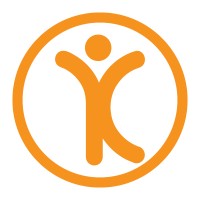
European Public Health Alliance (EPHA) Company CyberSecurity Posture
epha.orgEPHA is a change agent – Europe’s leading NGO advocating for better health. We are a dynamic member-led organisation, made up of public health NGOs, patient groups, health professionals, and disease groups working together to improve health and strengthen the voice of public health in Europe. Our MISSION is to bring together the public health community to provide thought leadership and facilitate change; to build public health capacity to deliver equitable solutions to European public health challenges, to improve health and reduce health inequalities. Our VISION is of a Europe with universal good health and well-being, where all have access to a sustainable and high quality health system: A Europe whose policies and practices contribute to health, both within and beyond its borders. WHAT ARE OUR VALUES? - Equity - Solidarity - Sustainability - Universality - Diversity - Good governance WHAT DO WE DO? - We monitor the policy making process within the EU institutions and support the flow of information on health promotion and public health policy developments amongst all interested players including: politicians, civil servants, NGOs, stakeholders and the public; - We promote greater awareness amongst European citizens and NGOs about policy developments and programme initiatives that effect the health of those living in the EU, allowing them to contribute to the policy making process; - We train, mentor and support NGOs and health actors to engage with the EU, particularly local organisations, those working with disadvantaged communities and in central and Eastern Europe; - We participate in policy debates and stakeholder dialogues to raise the profile of health in all policy areas, supporting collaboration and partnerships between non-governmental organisations and other organisations active at European, national and local level on health promotion and public health.
Company Details
european-public-health-alliance
36
17,853
921
epha.org
0
EUR_4646219
In-progress
Between 650 and 699

 EPHA Global Score (TPRM)
EPHA Global Score (TPRM)XXXX

Description: Between June and October 2024, European healthcare entities were targeted by the NailaoLocker ransomware as part of The Green Nailao campaign. The attackers exploited a zero-day flaw, CVE-2024-24919, in Check Point VPN appliances to gain unauthorized access. The ransomware, which exhibited poor design and a lack of sophisticated features, encrypted files and appended a '.locked' extension, demanding a ransom paid in Bitcoin. No indication of data theft was mentioned in the ransom note. The threat actors, potentially linked to Chinese APTs, used ShadowPad and PlugX malware for lateral movement and persistence, with motives ranging from espionage to financial gain. The attack disrupted healthcare services and potentially risked patient data, although the full extent of the damage remains undisclosed.


No incidents recorded for European Public Health Alliance (EPHA) in 2025.
No incidents recorded for European Public Health Alliance (EPHA) in 2025.
No incidents recorded for European Public Health Alliance (EPHA) in 2025.
EPHA cyber incidents detection timeline including parent company and subsidiaries

EPHA is a change agent – Europe’s leading NGO advocating for better health. We are a dynamic member-led organisation, made up of public health NGOs, patient groups, health professionals, and disease groups working together to improve health and strengthen the voice of public health in Europe. Our MISSION is to bring together the public health community to provide thought leadership and facilitate change; to build public health capacity to deliver equitable solutions to European public health challenges, to improve health and reduce health inequalities. Our VISION is of a Europe with universal good health and well-being, where all have access to a sustainable and high quality health system: A Europe whose policies and practices contribute to health, both within and beyond its borders. WHAT ARE OUR VALUES? - Equity - Solidarity - Sustainability - Universality - Diversity - Good governance WHAT DO WE DO? - We monitor the policy making process within the EU institutions and support the flow of information on health promotion and public health policy developments amongst all interested players including: politicians, civil servants, NGOs, stakeholders and the public; - We promote greater awareness amongst European citizens and NGOs about policy developments and programme initiatives that effect the health of those living in the EU, allowing them to contribute to the policy making process; - We train, mentor and support NGOs and health actors to engage with the EU, particularly local organisations, those working with disadvantaged communities and in central and Eastern Europe; - We participate in policy debates and stakeholder dialogues to raise the profile of health in all policy areas, supporting collaboration and partnerships between non-governmental organisations and other organisations active at European, national and local level on health promotion and public health.


The purpose of Reinvent Australia (RA) is to advance leadership on issues critical to the well-being of Australia and the quality of life of all Australians. RA advocates for a long-term, strategic approach by government and business to address the social and economic challenges facing the nation.
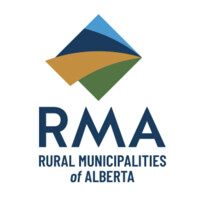
The Rural Municipalities of Alberta (RMA) is a progressive, independent association committed to meeting the diverse and changing needs of Alberta’s 69 counties and municipal districts. Since 1909, the RMA has helped rural municipalities achieve strong, effective local government through advocacy an
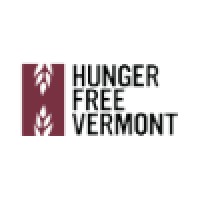
Hunger Free Vermont operates on a simple formula: it ensures that children have food wherever they are in their day, that adults and seniors can provide healthy meals at home, and Hunger Free Vermont offers nutrition and cooking classes to ensure that Vermont youth and adults know how to prepare nut
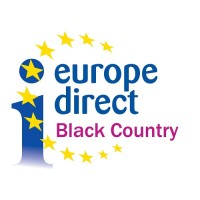
The Europe Direct Information Centre (EDIC) for the Black Country is your local information contact point on Europe, delivered by the Black Country Chamber of Commerce and funded by the European Commission. As an EDIC, the Black Country Chamber of Commerce will engage on European Union (EU) topics
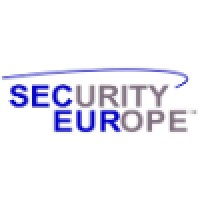
SecEUR sprl is an information publisher and consulting company devoted to EU civil security-related policy, R&D and business. Based in Brussels, it informs and assists stakeholders in identifying and pursuing opportunities on the civil security market. Its services include SECURITY EUROPE, the month
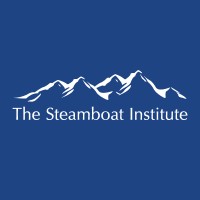
The Steamboat Institute promotes America’s first principles and inspires active involvement in the defense of liberty. Here at the Steamboat Institute, we are Defenders of Freedom and Advocates of Liberty. We are admirers of the bravery and rugged individualism that has made this country great. We
.png)
The squeeze on NGOs will have “serious long-term consequences for democracy,” warned one NGO chief.
Guest article by Dr Line Farah, Director of the national digital programs on “digital and aging well” and “digital in mental health”,...
It wasn't so long ago the EU's health unit was having its moment in the sun. Off the back of the Covid-19 pandemic it was gifted an extra €5...
The European Public Health Alliance welcomes and congratulates Ursula von der Leyen for her second mandate as President of the European Commission.
Belgian Health Minister Frank Vandenbroucke has a great CV for the EU's top health post. But will Belgium let him go?
The European Public Health Alliance (EPHA) is engulfed in crisis, after claims of harassment and a toxic work culture, and a wave of resignations.
All is not well at the European Public Health Alliance (EPHA). In what we're hoping won't become a regular feature of EU Influence, there has been yet another...
Many of my fellow journos engaged in some rare public advocacy on behalf of our colleague, the Wall Street Journal's Evan Gershkovich, detained almost exactly...
In a significant step towards promoting health equity and improving people's health, WHO/Europe and the European Public Health Alliance...

Explore insights on cybersecurity incidents, risk posture, and Rankiteo's assessments.
The official website of European Public Health Alliance (EPHA) is http://www.epha.org.
According to Rankiteo, European Public Health Alliance (EPHA)’s AI-generated cybersecurity score is 657, reflecting their Weak security posture.
According to Rankiteo, European Public Health Alliance (EPHA) currently holds 0 security badges, indicating that no recognized compliance certifications are currently verified for the organization.
According to Rankiteo, European Public Health Alliance (EPHA) is not certified under SOC 2 Type 1.
According to Rankiteo, European Public Health Alliance (EPHA) does not hold a SOC 2 Type 2 certification.
According to Rankiteo, European Public Health Alliance (EPHA) is not listed as GDPR compliant.
According to Rankiteo, European Public Health Alliance (EPHA) does not currently maintain PCI DSS compliance.
According to Rankiteo, European Public Health Alliance (EPHA) is not compliant with HIPAA regulations.
According to Rankiteo,European Public Health Alliance (EPHA) is not certified under ISO 27001, indicating the absence of a formally recognized information security management framework.
European Public Health Alliance (EPHA) operates primarily in the Public Policy Offices industry.
European Public Health Alliance (EPHA) employs approximately 36 people worldwide.
European Public Health Alliance (EPHA) presently has no subsidiaries across any sectors.
European Public Health Alliance (EPHA)’s official LinkedIn profile has approximately 17,853 followers.
European Public Health Alliance (EPHA) is classified under the NAICS code 921, which corresponds to Executive, Legislative, and Other General Government Support.
No, European Public Health Alliance (EPHA) does not have a profile on Crunchbase.
Yes, European Public Health Alliance (EPHA) maintains an official LinkedIn profile, which is actively utilized for branding and talent engagement, which can be accessed here: https://www.linkedin.com/company/european-public-health-alliance.
As of November 27, 2025, Rankiteo reports that European Public Health Alliance (EPHA) has experienced 1 cybersecurity incidents.
European Public Health Alliance (EPHA) has an estimated 1,031 peer or competitor companies worldwide.
Incident Types: The types of cybersecurity incidents that have occurred include Ransomware.
Title: The Green Nailao Campaign: NailaoLocker Ransomware Attack on European Healthcare Entities
Description: Between June and October 2024, European healthcare entities were targeted by the NailaoLocker ransomware as part of The Green Nailao campaign. The attackers exploited a zero-day flaw, CVE-2024-24919, in Check Point VPN appliances to gain unauthorized access. The ransomware, which exhibited poor design and a lack of sophisticated features, encrypted files and appended a '.locked' extension, demanding a ransom paid in Bitcoin. No indication of data theft was mentioned in the ransom note. The threat actors, potentially linked to Chinese APTs, used ShadowPad and PlugX malware for lateral movement and persistence, with motives ranging from espionage to financial gain. The attack disrupted healthcare services and potentially risked patient data, although the full extent of the damage remains undisclosed.
Type: Ransomware
Attack Vector: Zero-day vulnerability exploitation in Check Point VPN appliances
Vulnerability Exploited: CVE-2024-24919
Threat Actor: Potentially linked to Chinese APTs
Motivation: EspionageFinancial gain
Common Attack Types: The most common types of attacks the company has faced is Ransomware.
Identification of Attack Vectors: The company identifies the attack vectors used in incidents through Zero-day flaw, CVE-2024-24919 and in Check Point VPN appliances.

Downtime: Disrupted healthcare services

Data Exfiltration: No indication of data theft
Data Encryption: Files encrypted with '.locked' extension

Ransom Demanded: Demanded ransom paid in Bitcoin
Ransomware Strain: NailaoLocker
Data Encryption: Files encrypted with '.locked' extension
Data Exfiltration: No indication of data theft

Entry Point: Zero-day flaw, CVE-2024-24919, in Check Point VPN appliances
High Value Targets: Healthcare entities
Data Sold on Dark Web: Healthcare entities

Root Causes: Exploitation of zero-day flaw in Check Point VPN appliances
Last Ransom Demanded: The amount of the last ransom demanded was Demanded ransom paid in Bitcoin.
Last Attacking Group: The attacking group in the last incident was an Potentially linked to Chinese APTs.
Highest Ransom Demanded: The highest ransom demanded in a ransomware incident was Demanded ransom paid in Bitcoin.
Most Recent Entry Point: The most recent entry point used by an initial access broker were an Zero-day flaw, CVE-2024-24919 and in Check Point VPN appliances.
.png)
Angular is a development platform for building mobile and desktop web applications using TypeScript/JavaScript and other languages. Prior to versions 19.2.16, 20.3.14, and 21.0.1, there is a XSRF token leakage via protocol-relative URLs in angular HTTP clients. The vulnerability is a Credential Leak by App Logic that leads to the unauthorized disclosure of the Cross-Site Request Forgery (XSRF) token to an attacker-controlled domain. Angular's HttpClient has a built-in XSRF protection mechanism that works by checking if a request URL starts with a protocol (http:// or https://) to determine if it is cross-origin. If the URL starts with protocol-relative URL (//), it is incorrectly treated as a same-origin request, and the XSRF token is automatically added to the X-XSRF-TOKEN header. This issue has been patched in versions 19.2.16, 20.3.14, and 21.0.1. A workaround for this issue involves avoiding using protocol-relative URLs (URLs starting with //) in HttpClient requests. All backend communication URLs should be hardcoded as relative paths (starting with a single /) or fully qualified, trusted absolute URLs.
Forge (also called `node-forge`) is a native implementation of Transport Layer Security in JavaScript. An Uncontrolled Recursion vulnerability in node-forge versions 1.3.1 and below enables remote, unauthenticated attackers to craft deep ASN.1 structures that trigger unbounded recursive parsing. This leads to a Denial-of-Service (DoS) via stack exhaustion when parsing untrusted DER inputs. This issue has been patched in version 1.3.2.
Forge (also called `node-forge`) is a native implementation of Transport Layer Security in JavaScript. An Integer Overflow vulnerability in node-forge versions 1.3.1 and below enables remote, unauthenticated attackers to craft ASN.1 structures containing OIDs with oversized arcs. These arcs may be decoded as smaller, trusted OIDs due to 32-bit bitwise truncation, enabling the bypass of downstream OID-based security decisions. This issue has been patched in version 1.3.2.
Suricata is a network IDS, IPS and NSM engine developed by the OISF (Open Information Security Foundation) and the Suricata community. Prior to versions 7.0.13 and 8.0.2, working with large buffers in Lua scripts can lead to a stack overflow. Users of Lua rules and output scripts may be affected when working with large buffers. This includes a rule passing a large buffer to a Lua script. This issue has been patched in versions 7.0.13 and 8.0.2. A workaround for this issue involves disabling Lua rules and output scripts, or making sure limits, such as stream.depth.reassembly and HTTP response body limits (response-body-limit), are set to less than half the stack size.
Suricata is a network IDS, IPS and NSM engine developed by the OISF (Open Information Security Foundation) and the Suricata community. In versions from 8.0.0 to before 8.0.2, a NULL dereference can occur when the entropy keyword is used in conjunction with base64_data. This issue has been patched in version 8.0.2. A workaround involves disabling rules that use entropy in conjunction with base64_data.

Get company history
















Every week, Rankiteo analyzes billions of signals to give organizations a sharper, faster view of emerging risks. With deeper, more actionable intelligence at their fingertips, security teams can outpace threat actors, respond instantly to Zero-Day attacks, and dramatically shrink their risk exposure window.
Identify exposed access points, detect misconfigured SSL certificates, and uncover vulnerabilities across the network infrastructure.
Gain visibility into the software components used within an organization to detect vulnerabilities, manage risk, and ensure supply chain security.
Monitor and manage all IT assets and their configurations to ensure accurate, real-time visibility across the company's technology environment.
Leverage real-time insights on active threats, malware campaigns, and emerging vulnerabilities to proactively defend against evolving cyberattacks.




